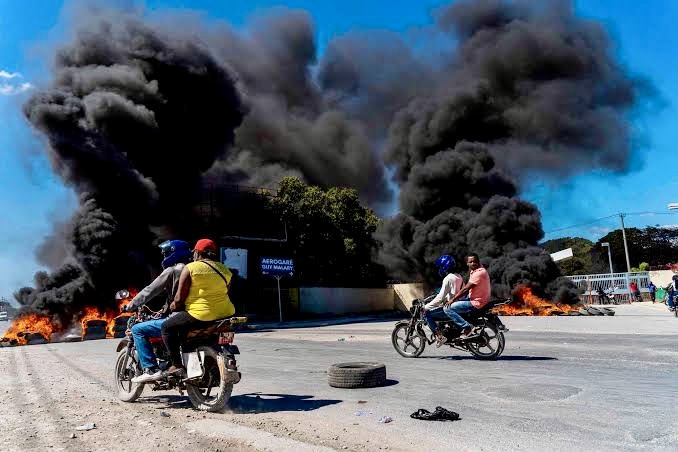
Faith Nyasuguta
Despite the United Nations Security Council giving its approval to the Kenya-led Multinational Security Support mission (MSS) to Haiti, the full extent of the costs associated with deploying these troops may not become clear until the next year.
In a recent vote, the UNSC passed Resolution 2699/23 with 13 in favor and 2 abstentions, paving the way for Kenya to send its pledged 1,000 police personnel to Haiti.
Additionally, countries like Jamaica, Antigua and Bermuda, and the Bahamas volunteered to contribute personnel. Mongolia, Spain, Senegal, and Belize expressed their support, while Canada pledged to assist in fundraising for the Mission alongside the United States.
The Council’s resolution encourages member states and regional organizations to contribute personnel, equipment, and necessary financial and logistical resources to support the Multinational Security Support mission. Interestingly, the Mission is not expected to receive direct funding from the UN’s security funding channels, indicating that it will rely on donor support and voluntary contributions from member states.
The UN Secretary-General may offer logistical support packages to the MSS upon request, subject to full financial reimbursement to the UN through voluntary contributions and in accordance with the United Nations Human Rights Due Diligence Policy (HRDDP).
The viability and mandate of the Mission will be subject to periodic review, with the understanding that the cost of this temporary operation will be covered by voluntary contributions.
The United States, co-drafter of the resolution alongside Ecuador, had pledged an initial $100 million in financial assistance and an additional $100 million in technical support for the Mission. Canada has also committed to providing technical support.
The MSS mission comes in response to Haiti’s formal request for external assistance in combating gang violence, nearly a year after the request was made. However, Russia and China abstained from the UNSC vote, expressing concerns about the deployment’s elevation to Chapter VII of the UN Charter and the unstable government situation in Haiti.
The mission’s primary objectives include working alongside the Haitian National Police, training and equipping local officers to address issues such as kidnappings, sexual and gender-based violence, human trafficking, smuggling of migrants and arms, homicides, extrajudicial killings, and the recruitment of children by armed groups and criminal networks.
Additionally, the MSS will provide security for critical installations like the main airport, seaport, schools, and hospitals, with the use of force being a last resort.
All UN member states are prohibited from selling or transferring arms to Haiti for the next year, with necessary measures in place to prevent such dealings. Any formal transfer of arms must only occur to the mandated Haitian authorities.
The cost of the MSS mission is expected to be substantial, as it includes components related to health, environmental conservation, and humanitarian support arms.
Kenya has announced its readiness to deploy troops, highlighting its historical involvement in peacekeeping missions. The National Peace Support Operations Fund, created by regulations passed in parliament, allocates funds to support Kenyan troops in their missions abroad.
Previously, funds for such deployments were sourced from the Consolidated Fund, making it challenging for the Ministry of Defence to support these operations.
The deployment is set to begin in January next year, sparking controversy due to the challenges and risks faced by the officers involved. President William Ruto has promised a different approach, drawing lessons from past interventions.
Amnesty International UK Executive Director Sacha Deshmukh emphasized the importance of local support for an intervention force and the need for a deep understanding of the country’s human rights and context. He expressed concern that an intervention force without such understanding could introduce new safety issues.
While Kenya’s officers have experience dealing with local gangs, some observers suggest that the mission should focus on providing an appropriate environment for stability, development, and democratic governance in Haiti. They emphasize the importance of backing from the United States for the success of the mission.
Kenya’s team for the mission will include units from its special Administration Police Service, including those from the Border Patrol Unit (BPU), Rapid Deployment Unit (RDU), and General Service Unit (GSU). These units may face challenges related to familiarity with the local terrain and languages, posing risks not only to the local population but also to the officers themselves.
In conclusion, the deployment of Kenyan troops to Haiti under the MSS mission is a significant undertaking with various challenges, including financial considerations and the need for local support and understanding. The success of the mission will depend on a range of factors, including international support and the ability to address the complex issues facing Haiti.
RELATED:




